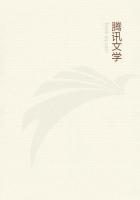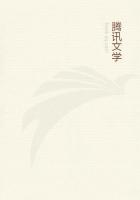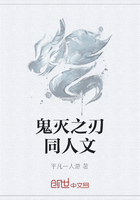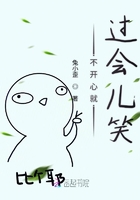Soc.Then he who is empty desires, as would appear, the opposite of what he experiences; for he is empty and desires to be full?
Pro.Clearly so.
Soc.But how can a man who is empty for the first time, attain either by perception or memory to any apprehension of replenishment, of which he has no present or past experience?
Pro.Impossible.
Soc.And yet he who desires, surely desires something?
Pro.Of course.
Soc.He does not desire that which he experiences, for he experiences thirst, and thirst is emptiness; but he desires replenishment?
Pro.True.
Soc.Then there must be something in the thirsty man which in some way apprehends replenishment?
Pro.There must.
Soc.And that cannot be the body, for the body is supposed to be emptied?
Pro.Yes.
Soc.The only remaining alternative is that the soul apprehends the replenishment by the help of memory; as is obvious, for what other way can there be?
Pro.I cannot imagine any other.
Soc.But do you see the consequence?
Pro.What is it?
Soc.That there is no such thing as desire of the body.
Pro.Why so?
Soc.Why, because the argument shows that the endeavour of every animal is to the reverse of his bodily state.
Pro.Yes.
Soc.And the impulse which leads him to the opposite of what he is experiencing proves that he has a memory of the opposite state.
Pro.True.
Soc.And the argument, having proved that memory attracts us towards the objects of desire, proves also that the impulses and the desires and the moving principle in every living being have their origin in the soul.
Pro.Most true.
Soc.The argument will not allow that our body either hungers or thirsts or has any similar experience.
Pro.Quite right.
Soc.Let me make a further observation; the argument appears to me to imply that there is a kind of life which consists in these affections.
Pro.Of what affections, and of what kind of life, are you speaking?
Soc.I am speaking of being emptied and replenished, and of all that relates to the preservation and destruction of living beings, as well as of the pain which is felt in one of these states and of the pleasure which succeeds to it.
Pro.True.
Soc.And what would you say of the intermediate state?
Pro.What do you mean by "intermediate"?
Soc.I mean when a person is in actual suffering and yet remembers past pleasures which, if they would only return, would relieve him;but as yet he has them not.May we not say of him, that he is in an intermediate state?
Pro.Certainly.
Soc.Would you say that he was wholly pained or wholly pleased?
Pro.Nay, I should say that he has two pains; in his body there is the actual experience of pain, and in his soul longing and expectation.
Soc.What do you mean, Protarchus, by the two pains? May not a man who is empty have at one time a sure hope of being filled, and at other times be quite in despair?
Pro.Very true.
Soc.And has he not the pleasure of memory when he is hoping to be filled, and yet in that he is empty is he not at the same time in pain?
Pro.Certainly.
Soc.Then man and the other animals have at the same time both pleasure and pain?
Pro.I suppose so.
Soc.But when a man is empty and has no hope of being filled, there will be the double experience of pain.You observed this and inferred that the double experience was the single case possible.
Pro.Quite true, Socrates.
Soc.Shall the enquiry into these states of feeling be made the occasion of raising a question?
Pro.What question?
Soc.Whether we ought to say that the pleasures and pains of which we are speaking are true or false? or some true and some false?
Pro.But how, Socrates, can there be false pleasures and pains?
Soc.And how, Protarchus, can there be true and false fears, or true and false expectations, or true and false opinions?
Pro.I grant that opinions may be true or false, but not pleasures.
Soc.What do you mean? I am afraid that we are raising a very serious enquiry.
Pro.There I agree.
Soc.And yet, my boy, for you are one of Philebus' boys, the point to be considered, is, whether the enquiry is relevant to the argument.
Pro.Surely.
Soc.No tedious and irrelevant discussion can be allowed; what is said should be pertinent.
Pro.Right.
Soc.I am always wondering at the question which has now been raised.
Pro.How so?
Soc.Do you deny that some pleasures are false, and others true?
Pro.To be sure I do.
Soc.Would you say that no one ever seemed to rejoice and yet did not rejoice, or seemed to feel pain and yet did not feel pain, sleeping or waking, mad or lunatic?
Pro.So we have always held, Socrates.
Soc.But were you right? Shall we enquire into the truth of your opinion?
Pro.I think that we should.
Soc.Let us then put into more precise terms the question which has arisen about pleasure and opinion.Is there such a thing as opinion?
Pro.Yes.
Soc.And such a thing as pleasure?
Pro.Yes.
Soc.And an opinion must of something?
Pro.True.
Soc.And a man must be pleased by something?
Pro.Quite correct.
Soc.And whether the opinion be right or wrong, makes no difference;it will still be an opinion?
Pro.Certainly.
Soc.And he who is pleased, whether he is rightly pleased or not will always have a real feeling of pleasure?
Pro.Yes; that is also quite true.
Soc.Then, how can opinion be both true and false, and pleasure true only, although pleasure and opinion are both equally real?
Pro.Yes; that is the question.
Soc.You mean that opinion admits of truth and falsehood, and hence becomes not merely opinion, but opinion of a certain quality;and this is what you think should be examined?
Pro.Yes.
Soc.And further, even if we admit the existence of qualities in other objects, may not pleasure and pain be ****** and devoid of quality?
Pro.Clearly.
Soc.But there is no difficulty in seeing that Pleasure and pain as well as opinion have qualities, for they are great or small, and have various degrees of intensity; as was indeed said long ago by us.
Pro.Quite true.
Soc.And if badness attaches to any of them, Protarchus, then we should speak of a bad opinion or of a bad pleasure?
Pro.Quite true, Socrates.

